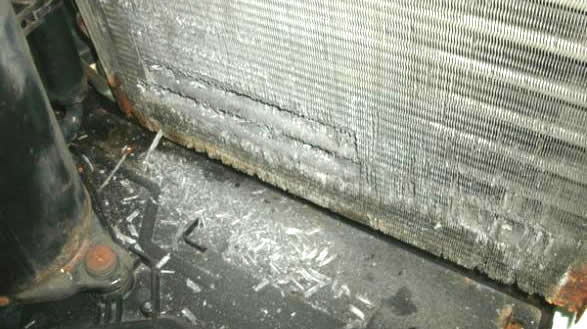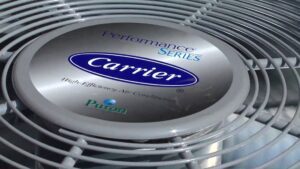Florida’s picturesque coastal regions are a haven for sun-seekers and ocean enthusiasts. The salty air, however, brings with it a silent adversary that affects the efficiency and longevity of HVAC systems – condenser coil degradation. In this article, we will delve into the mechanisms behind this phenomenon, its impact on air conditioning systems, and the preventive measures that can be taken to mitigate a pre mature AC repair in Fort Lauderdale, Florida.
Understanding Condenser Coil Degradation:
Condenser coils play a crucial role in the heat exchange process of air conditioning systems. Located in the outdoor AC unit, these coils facilitate the transfer of heat from inside the building to the external environment. In coastal areas like Florida, the air carries not only warmth but also a high concentration of salt particles. When salty air comes into contact with condenser coils, a series of corrosive reactions begin, leading to degradation over time.
Mechanisms of Salt-Induced Degradation:
Corrosion:
The primary culprit behind condenser coil degradation in coastal areas is corrosion. Saltwater contains chloride ions that accelerate the corrosion process. When these ions settle on the coils, they create a corrosive environment, leading to the breakdown of the coil’s metal structure. This corrosion weakens the coils, compromising their ability to efficiently transfer heat.
Coil Fouling:
In addition to corrosion, salt particles can accumulate on the condenser coils, forming a layer of fouling. This layer acts as an insulator, inhibiting the coils’ ability to release heat effectively. As a result, the HVAC system must work harder to maintain the desired indoor temperature, leading to increased energy consumption and potential air conditioning system failures.
Impact on HVAC System Performance:
Reduced Efficiency:
Corroded and fouled condenser coils diminish the efficiency of the entire HVAC system. The reduced heat exchange capacity forces the system to run longer cycles, consuming more energy and increasing utility costs. Homeowners and businesses may experience discomfort due to inadequate cooling, and the system may struggle to reach and maintain set temperatures.
Increased Wear and Tear:
The strain on the HVAC system caused by degraded condenser coils can result in increased wear and tear on other components. The compressor, in particular, may suffer from overwork, leading to a shorter lifespan and frequent breakdowns. This not only adds to maintenance costs but also disrupts the comfort of occupants.
System Failure:
Over time, the combined effects of corrosion and fouling can lead to complete system failure. A malfunctioning HVAC system can be a significant inconvenience, especially in Florida’s hot and humid climate. The cost of replacing an entire system is substantially higher than investing in preventive measures to protect condenser coils from salt-induced degradation.
Preventive Measures:
Coil Coating:
Applying a protective coating to condenser coils is an effective preventive measure. These coatings create a barrier between the metal surface and the corrosive elements in the air. Anti-corrosion coatings, such as those made from epoxy or polyurethane materials, are available and can significantly extend the lifespan of condenser coils in coastal environments.
Regular Maintenance:
Implementing a regular air conditioning maintenance schedule is crucial for preserving HVAC system performance. Cleaning condenser coils and removing accumulated salt deposits can prevent corrosion and foulings. This routine maintenance should be performed by professionals with experience in handling coastal HVAC systems.
Investing in Corrosion-Resistant Materials:
When installing or replacing HVAC systems in Fort Lauderdale, it is advisable to invest in units with components made from corrosion-resistant materials. Coastal-specific units often feature coatings or materials that can withstand the corrosive effects of salty air, providing a longer operational life.
Proper Installation:
Ensuring that HVAC systems are installed correctly is essential for minimizing the impact of salty air on condenser coils. Proper installation can prevent exposure to unnecessary risks, such as increased humidity in the outdoor unit, which can exacerbate corrosion.
Conclusion:
Florida’s coastal areas offer unparalleled beauty and a unique lifestyle, but they come with the challenge of salty air that can silently degrade HVAC systems. Understanding the mechanisms behind condenser coil degradation, its impact on system performance, and adopting preventive measures are crucial steps for homeowners and businesses in coastal regions. By investing in protective coatings, regular maintenance, corrosion-resistant materials, and proper installation, individuals can ensure the longevity and efficiency of their HVAC systems, providing comfort in the face of the salty air’s corrosive effects.
For further reading check out this PDF from Carrier Corp. that really goes into detail about corrosive environmental conditions and their effect on residential and commercial HVAC coils and equipment.






